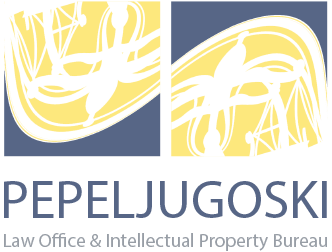Fitch Ratings has affirmed North Macedonia’s long-term foreign currency credit rating (Issuer Default Rating – IDR) at ‘BB+’ with a stable outlook.
Key factors for the ‘BB+’ credit rating of North Macedonia are:
- Long-term implementation of credible and consistent macroeconomic policies;
- Support for the long-term de facto fixed exchange rate to the euro;
- Better governance indicators compared to the median of countries with a similar rating;
- Commitment to the EU accession process.
Against these factors are the small size of the economy, the relatively high euroization of the banking sector, high structural unemployment and weak productivity growth.
When analyzing the situation in the Republic of North Macedonia, Fitch Ratings takes into account several factors that positively / negatively affect the credit rating, and in accordance with the current situation in the country, it also provides appropriate forecasts for future progress in a particular area.
Lack of fiscal basis:
The government has postponed the full implementation of the Organic Budget Law (OBL) for the second year in a row, with its implementation scheduled for early 2027. This law sets a limit of 3% of gross domestic product (GDP) for the fiscal deficit and 60% of GDP for the government’s gross debt.
High current expenditures (especially wages and pensions), as well as limited revenue-raising capacity, make it difficult to implement the provisions of this law, which reduces credibility according to Fitch.
Large but declining fiscal deficits:
The revised 2025 budget targets a deficit of 4% of GDP, due to high current expenditures and capital investments. In the first half of 2025, the deficit is 2.5% of GDP, partly supported by an unexpected dividend transfer of 3 billion denars from the central bank.
Fitch forecasts an overall fiscal deficit of 4.5% for 2025, then decreasing to:
- 3.9% in 2026 and 3.4% in 2027.
According to Fitch’s analysis, with an appropriate medium-term strategy, a deficit of 2.8% by 2029 can be expected, but only if revenue management improves, if reforms are implemented to access the Western Balkans Investment Framework Plan Funds (up to EUR 750 million) and if the growth of current expenditures is controlled.
High public debt:
Fitch forecasts public debt of 54.1% of GDP by the end of 2025, with an increase to more than 56% by 2027. Fitch’s medium-term projection shows debt stabilization at around 57% of GDP by 2030.
Around 30% of the debt is owed to multilateral and bilateral creditors. By mid-2025, 66% of the debt is in foreign currency, mostly in euros, which reduces foreign exchange risk due to the peg of the denar to the euro.
Inflation risks:
Inflation averaged 4.7% annually for the period from January to July 2025, all of which was influenced by wage growth of 9.8%, pension increases, credit growth of 13%, and a 4.9% increase in food and electricity prices for small businesses.
Inflation is forecast to decrease in 2026 by 3.3%, and in 2027 by 2.2%.
Stable economic growth:
Real GDP growth was 3.2% in the first half of 2025, supported by: investments (11.7%) and consumption (2.6%). Growth will be supported by the construction of corridors 8 and 10e, with the largest contribution in 2027. And the average economic growth is expected to be 3.4% for 2026 – 2027.
Moderate decline in foreign direct investment (FDI), stable currency peg:
Foreign direct investment is expected to moderate to historic lows after a 17-year high of 7% of GDP in 2024, as labor shortages and global uncertainty over auto tariffs weigh on investment sentiment. However, supported by external borrowing, international reserves will reach 5.2 months of current external payments by 2027 and underpin an external liquidity ratio of 145%, supporting the de facto peg to the euro.
Slow progress with EU accession:
No significant progress due to Bulgarian requirements.
Stable banking sector:
The banking sector is profitable (Q2 2025: return on average capital of 16.8%), well-capitalized (Q2 2025: tier 1 capital ratio of 19%), with solid liquidity, adequate asset quality (Q2 2025: non-performing loan ratio of 2.4%) and moderate provisioning levels.
ESG – Governance:
The Republic of North Macedonia has an ESG relevance of “5[+]” for both political stability and rule of law, institutional and regulatory quality, and control of corruption. These results reflect the high weight given to the Governance Indicators set by the World Bank (WBGI) in Sovereign Rating Model. North Macedonia has a medium WBGI rating of 51st percentile, reflecting a recent record of peaceful political transitions, moderate level of rights to participate in the political process, moderate institutional capacity, established rule of law and moderate level of corruption.
The confirmation of the credit rating of “BB+” with a stable outlook is a significant signal to international financial markets and investors that the Republic of North Macedonia is successfully preserving economic stability in the face of global challenges. This rating confirms the credibility of economic policies and is an encouragement to continue reforms, strengthen fiscal discipline and improve the competitiveness of the economy, with the ultimate goal of ensuring a higher standard of living for citizens and new opportunities for development.

